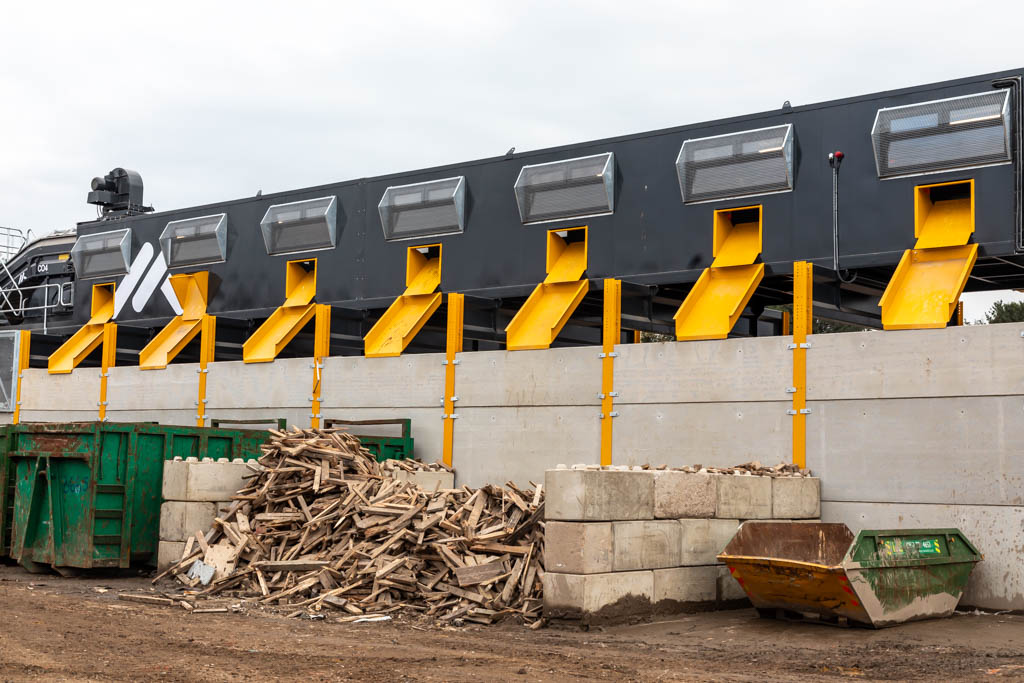⚠️ Traffic disruption – A27

Wood recycling in the UK plays a crucial role in promoting sustainability, reducing waste, and conserving natural resources. With growing environmental concerns and increasing awareness of the importance of recycling, the wood recycling industry has seen significant growth and development in recent years. Here, we delve into the various aspects of wood recycling in the UK, including its process, benefits, challenges, and future prospects.
Wood recycling in the UK encompasses the collection, sorting, and processing of wood waste from a variety of sources, including construction sites, demolition projects, manufacturing facilities, households, and businesses. This wood waste can come in various forms, such as timber offcuts, pallets, crates, packaging materials, and discarded furniture.
Once collected, the wood waste undergoes a rigorous sorting process to separate clean wood from contaminated or treated wood, such as painted or chemically treated timber. Clean wood is then processed through shredding, chipping, or grinding to produce wood chips, mulch, or wood pellets, which can be used as biomass fuel or raw material for manufacturing composite wood products. Contaminated or treated wood may undergo specialized treatment or disposal methods to prevent environmental harm.
The benefits of wood recycling in the UK are manifold. Firstly, it helps divert significant amounts of wood waste from landfills, reducing pressure on limited landfill space and mitigating the environmental impacts of landfilling, such as methane emissions and soil contamination. Secondly, recycling wood conserves natural resources by reducing the demand for virgin timber, thereby helping to preserve forests and biodiversity. Additionally, recycling wood can contribute to energy recovery and renewable energy generation through the production of biomass fuel, further promoting a circular economy and reducing reliance on fossil fuels.
However, wood recycling in the UK also faces several challenges. One major challenge is the contamination of wood waste with hazardous materials, such as paints, preservatives, and adhesives, which can pose risks to human health and the environment if not properly managed. Addressing this challenge requires effective sorting and treatment processes, as well as public awareness and education on proper wood waste disposal practices. Another challenge is the logistics of collecting and transporting wood waste from diverse sources to recycling facilities, which may require efficient coordination and infrastructure investment.
Looking ahead, the future of wood recycling in the UK appears promising, with growing support from government policies, industry initiatives, and public awareness campaigns promoting waste reduction and resource efficiency. Advancements in recycling technologies, such as advanced sorting and processing methods, as well as innovative uses for recycled wood products, are expected to further enhance the sustainability and viability of wood recycling practices. By continuing to invest in infrastructure, research, and education, the UK can build upon its achievements in wood recycling and pave the way towards a more circular and sustainable economy.
In conclusion, wood recycling in the UK is an essential component of waste management and environmental stewardship efforts, offering significant benefits in terms of waste diversion, resource conservation, and renewable energy generation. While facing challenges such as contamination and logistics, the industry is poised for growth and innovation, driven by a collective commitment to sustainability and circularity. With continued support and collaboration from stakeholders across sectors, wood recycling will continue to play a vital role in shaping a greener and more sustainable future for the UK.
Company Bio
Find out why L&S is no ordinary waste management company.
Go >
L&S In The Community
Learn more about our community projects.
Go >
Meet The Team
An introduction to the L&S management.
Go >
Company Information
Incorporated in England and Wales.
Registration No: 03475329
VAT No: 537 911 627
Registered Carrier Number: CBDU198877
Registered Office: Coronation Road,
Cressex, High Wycombe,
Buckinghamshire HP12 3TZ












